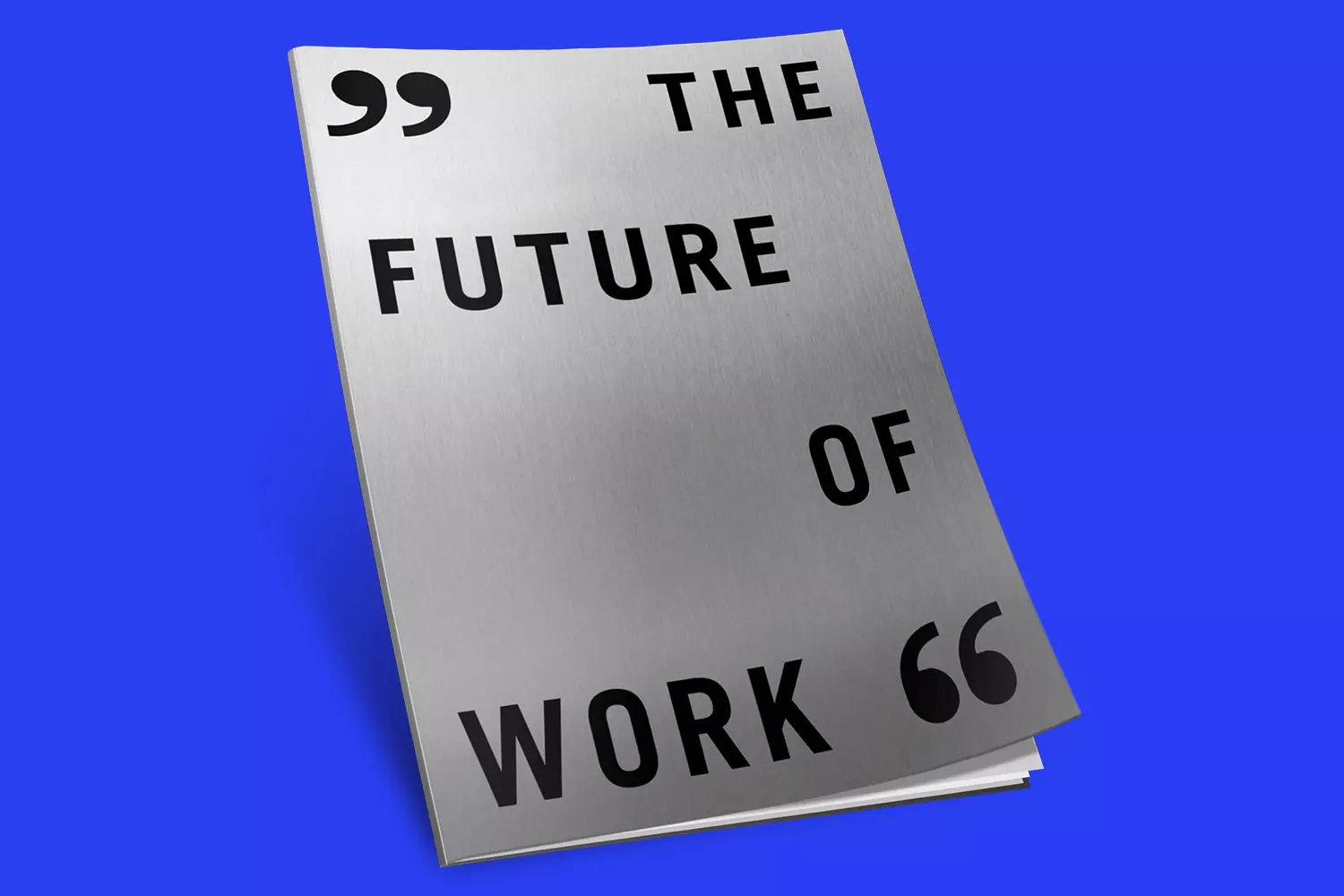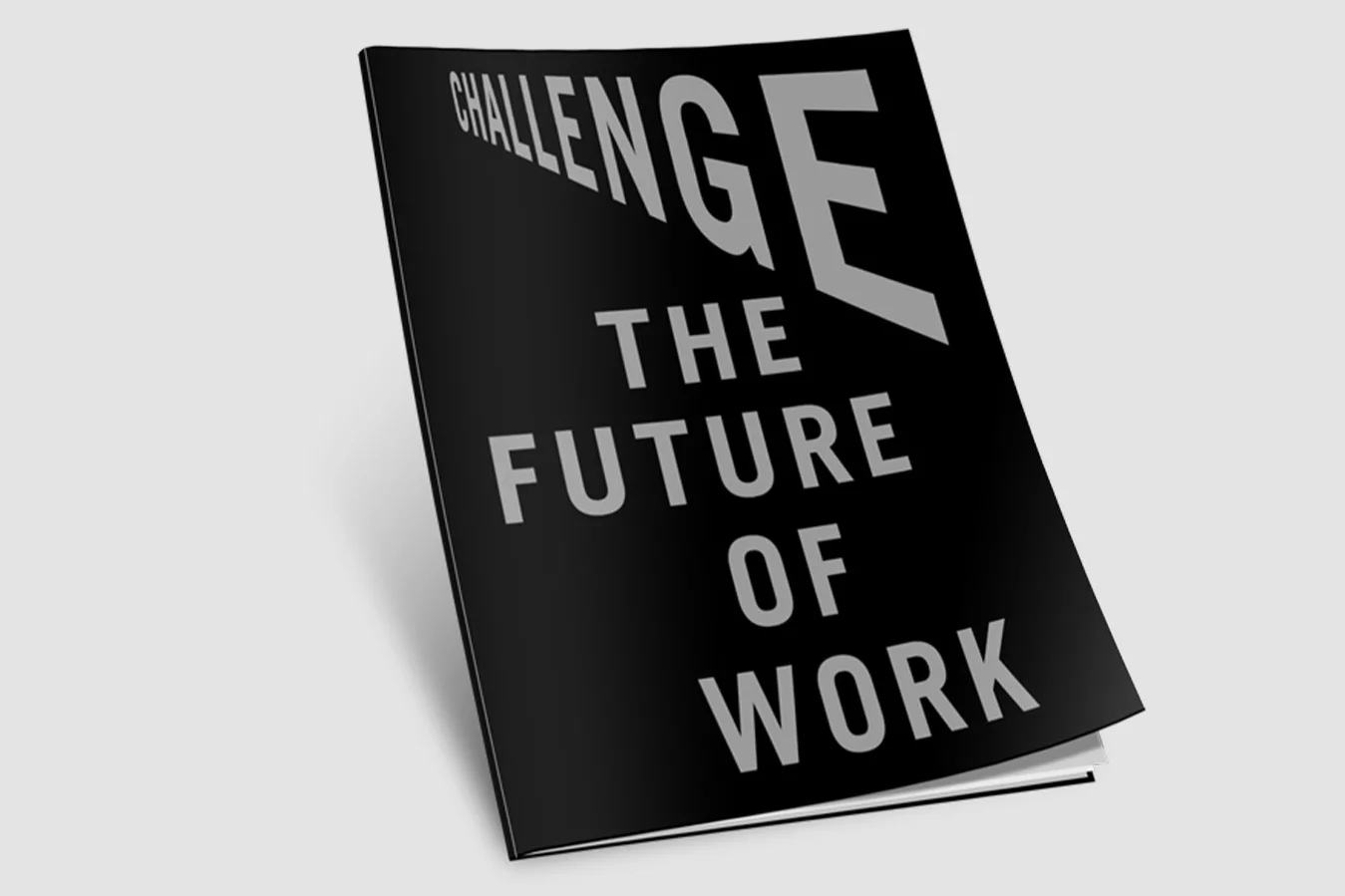

As a leading international designer and furnisher of modern office and work environments, our mission is to anticipate changes in work as early as possible and to provide new, intelligent solutions to our customers.
THE FUTURE OF WORK REPORT
SHAPING THE FUTURE
The Bene Future of Work Report 2018 is offering a comprehensive overview of what the future of work could look like. The report is based on specialized literature and on the opinion of 40 experts from well-established international companies, startups, science, and consulting firms. Our team has led numerous interviews with opinion leaders and hosted round table discussions in Berlin, London and Vienna. In doing so, we aimed to deepen our understanding of the future of work and explore the transformative changes that are shaping our professional landscapes.

CHAPTERS
DIGITAL TRANSFORMATION

Digital transformation is entering all areas of our lives, revolutionizing how we work and live. This chapter takes a closer look at how digital business models, robotics, artificial intelligence, the Internet of Things and other digital technologies influence and change life as we know it.
DIGITAL BUSINESS MODELS
It’s no longer the best product that garners the most success. Experts seem to agree that, in the future, businesses that generate the best data and turn it into the best services will come in first. Even so, the sharing economy and tendencies of giveaway culture also have a downside: Users make their data transparent and thus more vulnerable to manipulation.
ROBOTS AND ARTIFICIAL INTELLIGENCE
The young generation of digital natives is expected to deliver intuitive and promising solutions. Various forms of artificial intelligence will increasingly help them. At the same time, routine tasks in production and administration will be performed by robots. While people believe that this development will give individuals greater freedom to do what they enjoy, they are at the same time wary of a difficult transitional phase, in which many people will lose their jobs.
INTERNET OF THINGS
One of the last years’ buzzwords describes a world in which not only smartphones and tablets are linked in networks. Everyday objects like refrigerators or washing machines will also be connected as they collect, communicate and process data. These new smart devices will have a life of their own, programmed to invisibly assist people at home and at work. The lasting changes these developments will bring about have garnered reactions ranging from breathtakingly impressed to frightened.
OTHER TRANSFORMATIONAL TECHNOLOGIES
Technological developments in 3D printing, 3D projectors, VR glasses etc. will have a lasting effect on our daily lives. While some see them as positive innovations in a globalized, mobilized working world, sceptics fear our lives will gradually be taken over and dictated by new technologies.
LEADERSHIP CULTURE

77 percent of business leaders in Germany believe that we need a paradigm shift in leadership culture (Next Germany, Zukunftsinstitut 2017, p35). Network economy doesn’t work so well with traditional hierarchal structures, but rather thrives on cooperation, self-organization and teamwork among equals. This chapter explores how businesses organize themselves and manage their staff in the future.
SELF-ADAPTIVE SYSTEMS
The fact that businesses are fluid systems and not static entities, is often overlooked. Many things can neither be anticipated, nor planned, as human interactions constantly change and evolve. It is up to smart leaders to understand and support this co-evolution and to support employees in their learning process and teamwork efforts.
SELF-ORGANIZATION
As work processes are becoming more and more complex and difficult to standardize, executives’ expectations are changing, too. Nowadays, managers seek employees who deal with their tasks independently and self-sufficiently. Experts agree that trust and responsibility are key factors in this development, which can also have positive effects on motivation and stability.
FLUID LEADERSHIP
In an unpredictable, globalized, and increasingly complex world, traditional management mechanisms like instruction & control no longer get the job done (GDI Impuls 3, 2016 „Die Leadermacher“). Like an orchestra conductor or coach, managers face the challenge of coordinating their staff to reach a common goal. This requires staying focussed on the big picture, while also paying attention to people’s individual strengths and weaknesses. In this sense, ‘fluid’ stands for a new permeability in business structures, going beyond traditional communication channels and hierarchies.
EMPLOYEE ENGAGEMENT
Experts agree that the well-being of employees is often neglected as a determining factor for business success. This chapter takes a closer look at the growing need for a healthy work-life balance. We discuss how introvert and extrovert types thrive in different work settings and how positive relations to colleagues and leaders can favourably influence both a sense of well-being and productivity.
PURPOSE OF WORK

While what makes a job purposeful means different things for different people, experts agree that the idea of finding purpose in work is becoming more and more important. What employees expect from their work is becoming increasingly nuanced. Especially young talents are becoming more pronounced in their wishes. Policymakers face the challenge of adapting the existing educational system and labour laws to tomorrow’s needs.
THE MEANING OF WORK
Millennials have high demands when it comes to their employers. Work is not only supposed to be fun, it should also serve a higher purpose. Customers are no longer the only ones who base their decision for a product or service on a company’s social and environmental behaviour; today’s employees are just as critical of the business they work for.
EMPLOYER BRANDING
A business trying to recruit tomorrow’s talent has to offer more than a decent salary and attractive benefits. Organizational culture and individual development opportunities have become major points for job seekers. A healthy work-life balance has also never been as important as today.
NEW WAYS WE WORK
Digital transformation and globalization go hand in hand with the trend of more unconventional forms of work. People are paid for the work they get done instead of for hours spent in the office; work conditions in general have become more flexible. Workshifting, for example, describes a modern concept based on defining work independently from time or place. Models like this subsequently bring about changes in leadership styles and communication strategies within and between businesses.
SOCIO-POLITICAL EFFECTS
Robots taking over routine tasks in production are a phenomenon we are familiar with. Thanks to the continuous development of artificial intelligence, even more jobs will be passed on to machines in the future, some fear. At the same time, this will create new job profiles, requiring new skills and qualifications. As a result, voices calling for timely reforms and adjustments in education and labour laws are becoming louder.
OPEN COLLABORATION

Numerous studies confirm that collaborative businesses – where individual achievements are channelled into the efforts of a common whole – have more long-term success on the market than others (GDI Impuls No. 3, 2016, “To Bee or not to Bee”, Peter Gloor). Practices of inter-divisional collaboration and bilateral exchange between businesses have never been as widespread as today.
INTERACTION BETWEEN PEOPLE
As businesses delve deeper into digital transformation and global presence, they must also deal with the side effect of depersonalization. Experts agree that we need places where people – as social beings – can fulfil their need for personal exchange. This holds true for both work environments and contact points for customers.
INTERACTION BETWEEN PEOPLE AND MACHINES
In the future, nearly all sectors will increasingly apply artificial intelligence. Issues that arise when people and machines intersect must be resolved as soon as possible, experts believe.
INTERACTION FOR INNOVATION
Silicon Valley is a perfect example of how productive letting go of the idea of perfectionism can be. And how important it is to involve customers in the development process. The increasing opening of the innovation process makes it more necessary than ever to incorporate impulses and know-how from external partners and experts.

Learn more about
- Digital Transformation
- Leadership culture
- Purpose of work
- Collaboration



